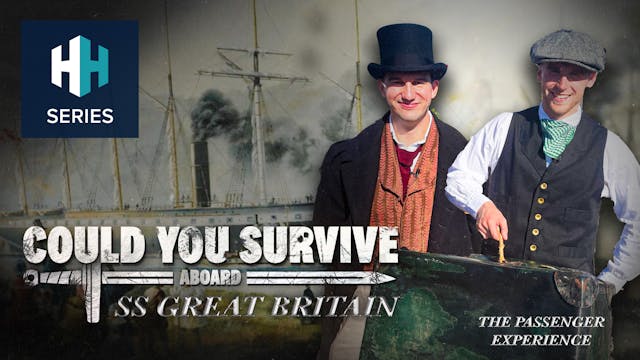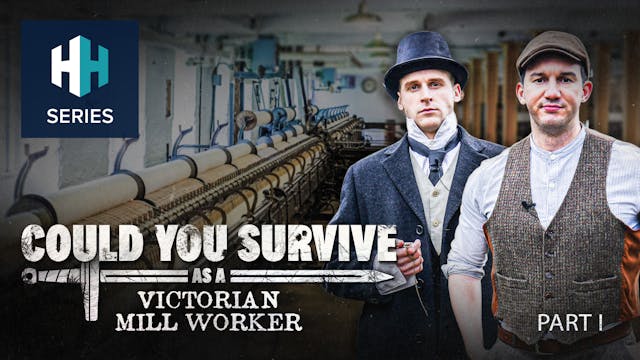What was working on SS Great Britain really like? Isambard Kingdom Brunel's SS Great Britain is undoubtedly one of the most important historic ships in the world. When she was launched from Bristol by Prince Albert in 1843, she was called 'the greatest experiment since the creation'. No one else in the Victorian era had designed an iron ship so vast or revolutionary. It was also the world's first great luxury ocean liner, carrying passengers to the United States and Australia throughout her long career.
SS Great Britain changed history. As well as being built of iron and steam powered, Brunel rejected using conventional paddle wheels to drive his ship. Instead, his revolutionary screw propeller was the newest invention in maritime technology.
But what was it like to work on SS Great Britain? What were the jobs aboard ship? And did the crew get to share the comforts of passengers aboard the world’s first luxury ocean liner?
History Hit presenters Louee Dessent and Luke Tomes step aboard to experience the life of the crew in the 19th century, to see what it was really like serving on the world's first ocean liner. But while Luke gets to enjoy the relative ease of life as an officer, Louee takes on the less enviable jobs of stoker and able seaman.
As well as getting into authentic Victorian costume, the pair are put to work flag raising, map reading and climbing the rigging. Louee also takes on the Go Aloft! Challenge, climbing out across the yard arm for a better view of the Bristol dry dock where SS Great Britain was launched.
Up Next in Victorians
-
Could You Survive SS Great Britain? P...
When she set out on her first voyage to New York in 1845, SS Great Britain was the largest passenger ship ever built, and she would go on to transport over 30,000 people during her 41-year-working life.
For most of that period, the ship carried emigrants between Liverpool and Melbourne on the n...
-
Could you Survive as a Victorian Work...
As new technologies emerged throughout the 19th century, and the use of water and steam power became commonplace, millions of rural workers, including thousands of children, descended on the growing industrial towns to work in mills and factories. Northern cities such as Manchester, Leeds and She...
-
Could you Survive as a Victorian Work...
As new technologies emerged throughout the 19th century, and the use of water and steam power became commonplace, millions of rural workers, including thousands of children, descended on the growing industrial towns to work in mills and factories. Northern cities such as Manchester, Leeds and She...




2 Comments